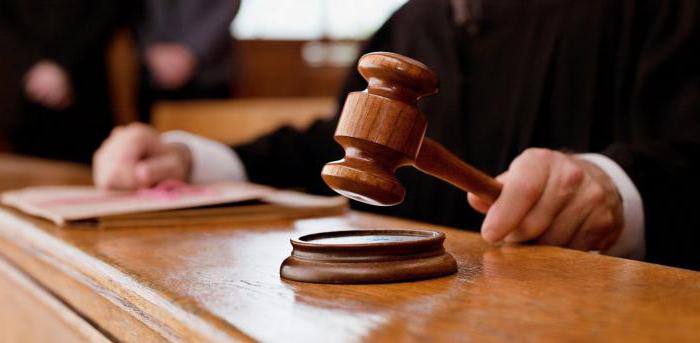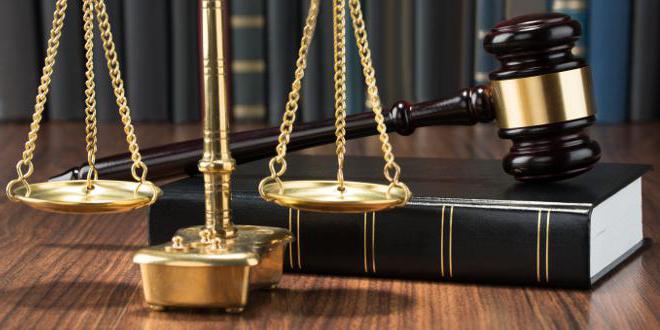All of us often hear about certain officials who occupy high posts and carry out important functions. Who are they and how do they differ from ordinary citizens? The answer to this question is provided by the Russian Administrative Code - the Code of Administrative Offenses. Officers, their status and responsibilities will be discussed in this article.
Concept of an official
A Russian citizen performing the functions of a representative of authority is called an official. Moreover, the government does not have to be state. A person can acquire the status in question by occupying a senior position in a public institution, party, enterprise or even in a production organization. In most cases, the functions that an official performs are closely related to administrative and managerial activities.
There are several definitions of the term “official”. Administrative Code of the Russian Federation says about an individual that has committed an administrative offense. The Criminal Code of the Russian Federation points to a criminal offense, and the Civil Code of the Russian Federation - to civil relations. If we look at the concept through the prism of the Russian elite, then we are talking about a representative of the state authority of the Russian Federation. Next, consider the definition provided by the Russian Administrative Code.
Official: Art. 2.4 Administrative Code of the Russian Federation
The Administrative Code of Russia gives an exhaustive definition of the concept presented. According to the law, an official means a citizen who is vested with certain authority in the manner prescribed by law. A person extends his functions to citizens who are not in official dependence on him.
Officials, as defined by the Code of Administrative Offenses, carry out functions of an administrative-economic and administrative-organizational nature. Such persons may exercise their powers in the following public areas:
- Russian Armed Forces;
- local authorities;
- state and municipal organizations.
Persons who violate the duties and powers assigned to them will be punished in accordance with the articles of the Administrative Code on Officials. Some of these articles will be discussed in detail below.
About the status of an official
Who is the official on the Administrative Code of the Russian Federation? You can answer this question, but only after having previously determined the status of the person. For this, it is necessary to pay attention to the legal regulation of the assigned powers. Moreover, the status does not depend on the objective implementation of the functions performed.
An official has the right to exercise the rights entrusted to him or to refrain from them. However, a citizen cannot refuse duties. Thus, in this area an equal ratio of imperative and dispositive principles prevails. In administrative law, it is possible to identify private law and public activity, which refers to the competence of an official. It should be noted that such identification is possible only in the field of administrative law. So, in the criminal sphere a person has the opportunity to exercise only public authority.
Features of an official in administrative law
The Code of Administrative Offenses secures types of responsibility for both legal and public officials. In most cases, sanctions are imposed on a citizen for improper performance of duties, or for their complete failure to fulfill.
Officials can be held responsible both in the administrative sphere and in any other. In particular, the appointment of punishment under criminal law to a citizen will be a frequent occurrence. In the legislation of a criminal type, officials are understood as citizens who temporarily or constantly exercise the functions of a representative of the government. Chapter 30 of the Criminal Code of the Russian Federation is entirely devoted to officials.
Administrative Code provides a much broader and more comprehensive definition. In administrative law, the subject of liability is a person who has committed an offense in the field of his authority. These are not only the leaders and representatives of the commanding staff, but also ordinary state employees who carry out administrative, economic and administrative functions.
Officers and ordinary citizens
In the administrative and legal sphere, both government officials and some ordinary workers are considered officials. So what is the difference between ordinary people and officials? According to the Code of Administrative Offenses of the Russian Federation, the category of officials includes citizens working in government bodies and performing a number of administrative and economic functions there. This should also include individuals engaged in entrepreneurial activities - the so-called individual entrepreneurs. It is here that a lot of complaints and disputes arise.
One would think that individual entrepreneurs are far from defining the Code of Administrative Offenses as "official." If we take the activities of individual entrepreneurs, as well as violations in the sphere of exercising powers, then the legal nature will resemble the activities of ordinary legal entities. persons. Motives, the nature of the acts, the composition of the violations - all this indicates the remoteness of the individual entrepreneur from officials. And this is no coincidence. Recently, the legislator really began to move away from the identification of individual entrepreneurs and official citizens. A number of special cases showed that the responsibility of entrepreneurs increasingly began to take shape based on the affairs of legal entities. A simple example is the recent note to article 16.1 of the Code of Administrative Offenses of the Russian Federation. Responsibility SP is now classified as legal. persons, but not in all cases. So far, such a rule is valid for Article 7.34 of the Code of Administrative Offenses on violation of the use of land.
Officials offenses
The “special part” of the Russian Administrative Code contains 442 articles. Of these, 330 are devoted to the responsibility of officials - this is almost three quarters. Most of the articles are devoted to entrepreneurial and organizational-economic activity of citizens. Here it is worth highlighting offenses in the following areas:
- encroachment on civil rights (50 articles from chapter 5 of the Code of Administrative Offenses of the Russian Federation);
- property protection (29 articles from chapter 7 of the Code of Administrative Offenses of the Russian Federation);
- ecology, nature management and environmental protection (38 articles from chapter 8 of the Administrative Code of the Russian Federation);
- agriculture, land reclamation and veterinary medicine (14 articles from chapter 10);
- communication and information (23 articles from chapter 13 of the Code of Administrative Offenses of the Russian Federation);
- industry, energy and construction (14 articles from chapter 9);
- finance and taxes, as well as entrepreneurial activity (59 articles from chapters 14 and 15);
- customs sphere (21 articles from chapter 16);
- encroachment on public authorities of the Russian Federation (10 articles from chapter 17);
- military registration (4 articles from chapter 21);
- management procedure (19 articles from chapter 19).
Thus, the responsibility of officials in the Code of Administrative Offenses is provided almost everywhere.
Sanctions for Offenses
Are there any special types of sanctions for officials? The Russian Administrative Code states that the imposition of punishment for an organization does not exempt officials from liability. The most common form of punishment for such citizens is an administrative fine and disqualification.  In the latter case, we are talking about the deprivation of the opportunity to occupy a professional position for a period determined by the court. A simple example is the highest official of a subject of the Russian Federation.The governor, the head of a republic, district or any other region may be dismissed for any offense. Sometimes disqualification may coincide with lustration - but only in cases of a change of power throughout the country.
In the latter case, we are talking about the deprivation of the opportunity to occupy a professional position for a period determined by the court. A simple example is the highest official of a subject of the Russian Federation.The governor, the head of a republic, district or any other region may be dismissed for any offense. Sometimes disqualification may coincide with lustration - but only in cases of a change of power throughout the country.
Examples of officials
According to the legal status alone, it is not so easy to determine an official. The Administrative Code, unfortunately, does not provide detailed information about certain types of professions. That is why it is worth considering examples from practice.
Often, citizens get a job, after which they can not understand in any way whether they are officials. Rights and obligations in this case are the best way to determine status. For example, you can take the storekeeper. It would seem, can such an employee acquire the status in question? In fact, it can, if you sign a document on liability. In this case, he will have administrative powers, he will receive the right, at his discretion, to accept or issue goods. This happens, but not often: sometimes employers decide to entrust their subordinates with part of their own functions. Whether this is good or not is a moot point. Ordinary workers, having received the status of an official, acquire a special type of responsibility. Therefore, sanctions may be imposed on them in case of violation by the whole organization.
Rights and obligations of officials
It is worth moving from the problem of blaming officials to the problem of blaming responsibility on behalf of such citizens. Officials from the system of state bodies have the duty to protect the state system and the fight against lawlessness. Their main task is to ensure appropriate, honest, fair and lawful prosecution of violators of the order. For this, a circle of statesmen is determined, who are officials, after which they are empowered.
More than sixty supervisory authorities consider administrative cases, of which there are about four hundred in the Administrative Code. For example, the internal affairs bodies deal with 50 types of violations, among which are the areas of traffic, law enforcement, etc. In the internal affairs bodies, officials are leaders and their deputies. It is these individuals who consider cases of violation of the law.
Tasks of officials
It is worth considering the work of officials in identifying offenses by the example of ATS. It is this authority that implements most of the functions in the field of prevention and suppression of offenses. The following cases are being examined:
- violation of the rules of stay at the state border;
- appearance in public in a drunken state;
- petty hooliganism;
- drinking alcohol in public places;
- violation of road safety rules, etc.
The power of ATS affects many areas of public life, but it is not unlimited. It is also worth noting that the actions and omissions of an official that are not in accordance with the law may be identified and convicted by another official.
Authorized Institutions
What officials are entitled to decide cases of administrative offenses? It all depends on the severity of breaking the law. So, it is worth paying attention to the following instances:
- customs and tax authorities, military commissariats, border services;
- ATS;
- executive agencies;
- collegial administrative commissions;
- juvenile commissions;
- justices of the peace, as well as judges from district and regional courts.

Civil servants in Russia are divided into federal and regional. At the federal level, there are Parliament, Government and the President. At the regional level, the highest official of the subject of the Russian Federation, regional authorities and courts.